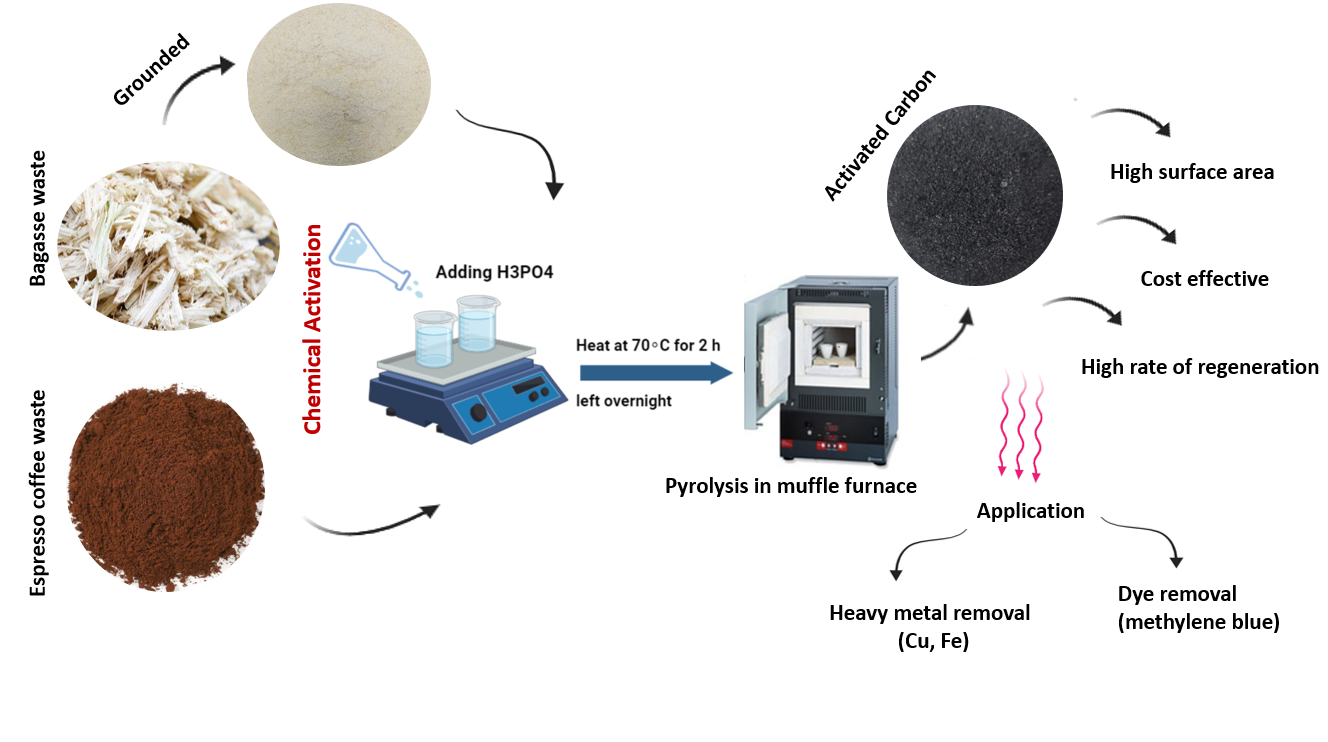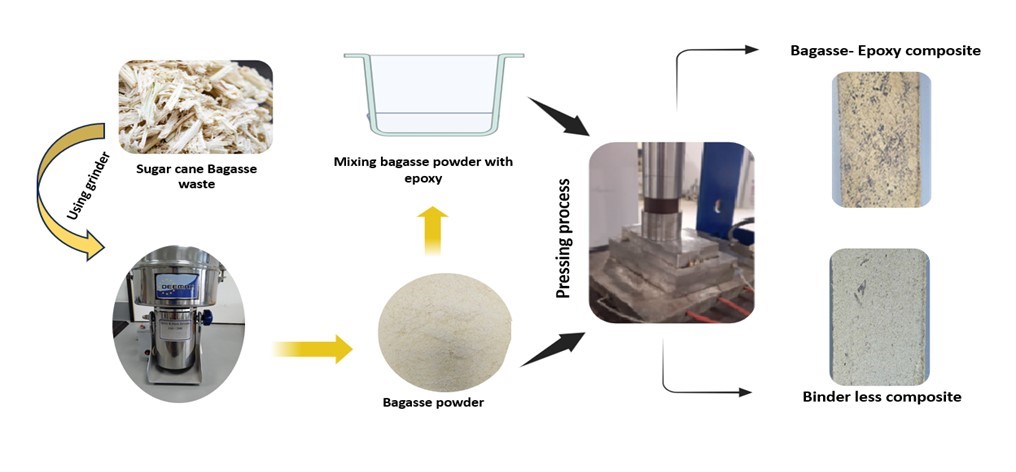
Research Project
Advancing Sustainable Construction: Exploring Alternative Adhesives for Environmentally Friendly Building Materials
Abstract This project project focuses on the development of environmentally friendly and sustainable construction materials, with a specific emphasis on exploring alternative options for synthetic formaldehyde adhesives. By replacing conventional adhesives with eco-friendly alternatives, the project aims to mitigate the adverse environmental effects associated with construction activities. The

Research Project
Assessing Environmental Sustainability: Life Cycle Assessment of Cotton Stalk Utilization for Wood Composites, Bioethanol, and Biogas Production
Abstract The project employs rigorous life cycle assessment methodologies, including Ecological Footprint, Impact 2002+, Global Warming Damage Potential, and more, to evaluate the environmental impact of each process. This project compares the utilization of cotton stalks for wood composites, bioethanol, and biogas production. Through life cycle assessment, the project shows that bioethanol has a

Research Project
AI-Driven technologies for plastic waste management in marine environments: Biodegradation of PET and advanced detection technologies
Abstract Plastic waste is a major global environmental challenge, particularly in marine habitats. This project focuses on two critical aspects: the biodegradation of polyethylene terephthalate (PET) and the utilization of artificial intelligence (AI) technologies for detecting marine plastics. It explores the microbial breakdown of PET and waste management options. The project also highlights the

Research Project
Fungus-Based Wood Composites: Mitigating Climate Change through Sustainable Utilization of Agricultural Waste
Abstract This project focuses on addressing the significant contribution of agricultural waste burning to - global warming and climate change. By utilizing fungus as a binding element, a sustainable wood composite is being developed. The chosen fungus for this project is Aspergillus niger, which is grown and applied to cotton stalks and pulverized wood under specific conditions that induce

Research Project
Bio-Mimetic Locomotion of Soft Turtle Robot
Abstract Amphibious robots have great potential for a variety of applications, but their design can be complex and expensive. Bio-inspired soft robotics offers a promising solution, as their actuators can perform evenly on land and underwater. Our robot takes inspiration from turtle locomotion as it bridges the gap between traditional four-legged robots and swimming robots. The robot can be

Research Project
Bio-inspired Soft Robot for Monitoring Coral Reefs
Abstract Coral reefs play a crucial role in supporting a quarter of all aquatic life, but their existence is now threatened by ongoing climate changes. Our project aims to develop an underwater soft robot that can mimic the morphology and shape of actual marine creatures and to imitate their swimming motion. This robot can play a critical role as monitoring platform to understand the reefs

Research Project
Enrichment of biological activity of zinc doped borate glasses by nano second laser irradiation
Abstract The project explores the use of Nd: YAG laser irradiation to synthesize nano bioactive glass for bone replacement. The technique involves precipitating nanoparticles in a glassy matrix, such as borate glasses, doped with zinc oxide (ZnO) using a melt quenching technique. The effects of different concentrations of ZnO on the glasses' structural and optical properties were studied using

Research Project
Activated Carbon Nanoparticles for Enhanced Wound Healing and Tissue Regeneration
Abstract Activated carbon nanoparticles (ACNPs) are novel antimicrobial materials being explored for wound healing and tissue regeneration. ACNPs can be coated on fabrics to provide antibacterial protection. Porous ACNPs can absorb impurities and toxins from wounds, acting as effective wound dressings. To evaluate their effectiveness and safety, antimicrobial testing and cytotoxicity assays are

Research Project
Activated carbon- from agricultural waste for removal of industrial dyes and heavy metals
Abstract The production of activated carbon from bagasse and coffee waste is a promising approach for sustainable waste management and the production of a valuable material. Bagasse, the fibrous residue from sugarcane processing, and coffee waste, such as coffee grounds or husks, are abundant agricultural by-products with high carbon content. The resulting activated carbon exhibits excellent

Research Project
Sugarcane Bagasse Recycling for Wood-Based Panels
Abstract The project explores the recycling and reuse of organic waste fibers sugarcane bagasse (SCB). The project investigates the chemical, physical, and mechanical properties of SCB, its production percentage in Egypt, and particle board production from SCB. The project investigates the mechanical properties of a composite material made from sugar cane and epoxy. The addition of epoxy resin